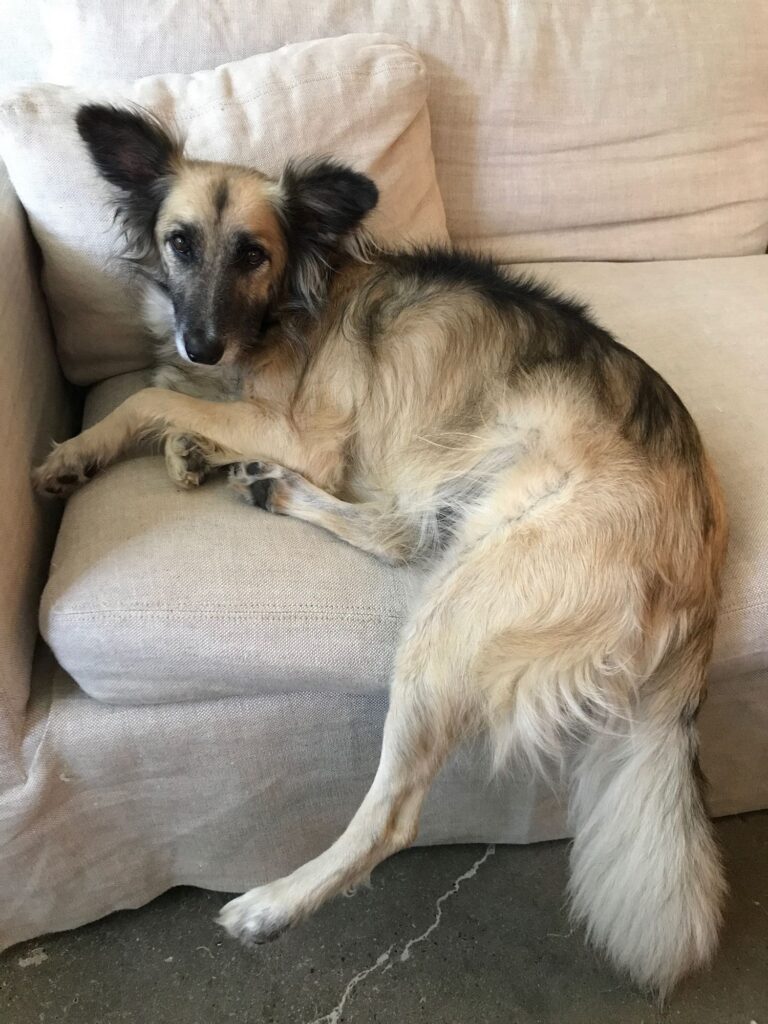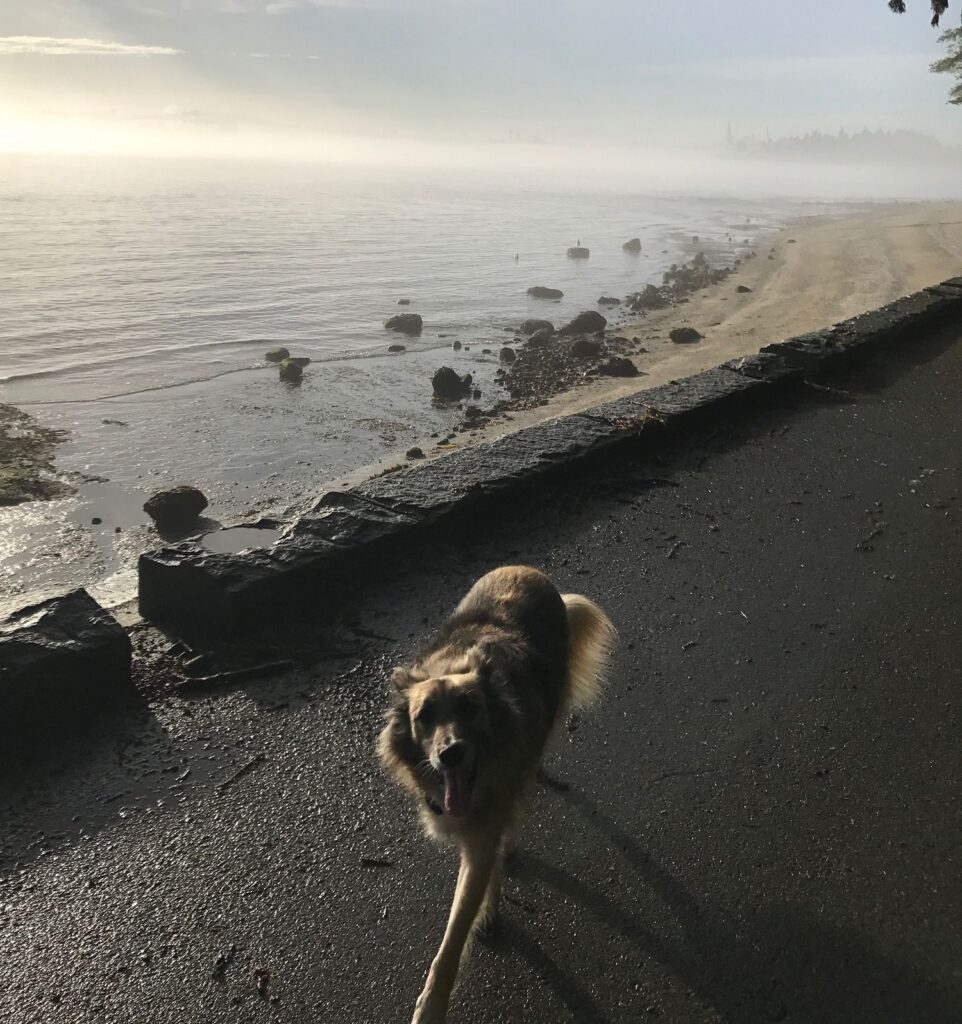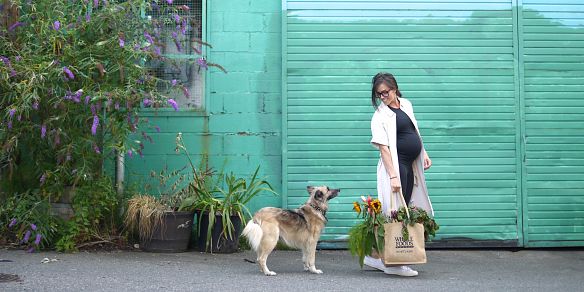I’ve waited over four months to tell you something very exciting….Effie has gone vegan! I delayed sharing the news to make sure the new diet was working for her, but I can confidently say that she is as happy, as healthy and as energetic on her new pea protein diet as she was eating raw meat.

Before making the switch, we did a lot of research. Even though we are a vegan family, we weren’t prepared to switch Effie over without making sure it was the right move for her. After speaking to three veterinarians (Dr. Neal Cropper, Dr. Sarah Rurak and Dr. Jennifer Adolphe, who holds a Ph.D. in pet nutrition and was involved in developing the vegan dog food Effie’s eating), we felt confident it was not just safe, but healthy. Each of them told us that dogs are ‘scavengers’ as opposed to true carnivores (like cats, who are in the same family as lions and tigers). Dogs, on the other hand, eat a lot of whatever they find on the ground, out of the garbage and what their human companions sneak them under the dinner table. Turns out they don’t need meat to survive — but they do need the right combo of protein and amino acids, something that can easily be formulated with plant-based ingredients, I’ve learned.
Sidenote: The vets I spoke to told me that cats can’t go vegan, but I recently learned about Vecado Plant-based Pet Foods, a company who says their plant-based formula is healthy for cats — possibly worth looking into if you’re a vegan family wanting to explore veganism with the cat in your life?
Was it hard to feed Effie a raw meat diet as a passionate vegan person? Yes!! But we justified it by telling ourselves that her animal-based meals were made with the byproducts of the meat industry — the leftover parts of animals that humans don’t consume — and therefore not directly contributing to, or driving, the animal agriculture industry. The other side of that coin was the concern that the meat we were feeding her was low quality and full of scraps (tumors and other parts of animals that humans don’t want to consume).
I also hated having raw meat in the house while raising a baby. It felt like I was constantly washing my hands and the counters for fear that I’d transfer some of the bad bacteria to her developing immune system. In an article I read that “The FDA Center for Veterinary Medicine tested over 1000 samples of pet food for bacteria that can cause foodborne illnesses. They were specifically interested in the bacteria which causes salmonella and for L. monocytogenes which cause listeria. Their results were quite clear. Salmonella appeared in 7.6% of the samples of raw food (that’s one out of every 13 samples tested) and the bacteria for listeria was more than twice as likely to be present, totaling 16% of the samples tested (which is approximately one out of every seven samples).”
Four months into her veganism, Effie is thriving and I can honestly say, her poos have never been more regular and healthy. On her meat diet, they were often small and on the drier, hard side. Now they are plump and moist every single day (twice a day, actually!) – a sign of health.
There are several vegan (and vegetarian) dog foods on the market. We’ve been feeding Effie Petcurean’s Gather (the first ingredient is organic peas) but there’s also DOGG and Vecado, both of which I haven’t checked out.
A few other articles I found interesting on this topic:
Dog Owners Are Wrong About the Health Benefits of Raw Diets
Toronto’s Vegan Dog Owners Feeding Pets Veggies, Too


